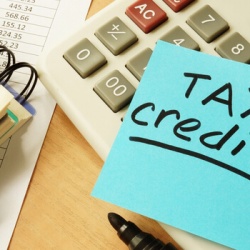Accounting for freelancers – understanding tax obligations and how to stay compliant

Understanding your tax obligations as a freelancer can seem a little daunting at first, but it is important to stay compliant with the regulations. Ultimately you face financial penalties for failing to meet the requirements, not to mention a poor reputation with HMRC that can have adverse effects on your business in the years to come.
So what do you need to know about your tax obligations as a freelancer, and how do you stay compliant?
Registering with HMRC
The structure of your freelance business, whether you set up as a sole trader or a limited company, determines your obligations around tax and accounting. Whichever structure you choose, you need to register your business with HMRC. The deadline for registering is 5th October in your second year of business, and you may receive a fine if you fail to register on time.
Record keeping and accounting
You need to keep detailed records of your business transactions and retain all supporting documentation, including receipts, invoices, and bank statements, for at least six years. Recording can be carried out manually, via a spreadsheet, or using bookkeeping/accounting software - these records enable accurate reporting, and form the basis for compliance with HMRC.
Self assessment and tax payments
The self assessment system takes the figures from your accounting records, and calculates your tax and National Insurance liability for the year. The majority of tax returns are submitted online these days, with the deadline being 31st January following the tax year concerned.
If this is your first year in business you also need to know that, under the Payments on Account system, you face an additional tax liability on top of the tax that is due for the first year – this additional sum is the equivalent of 50% of the tax due.
Freelancer tax and National Insurance
As a self-employed freelancer you pay income tax and potentially two types of National Insurance Contribution depending on your profits (earnings minus allowable deductions):
- Class 2 NI if your profits exceed the lower limit (£6,205 in 2018-19)
- Class 4 NI at a rate of 9% if your profits fall between the Lower Profits Limit and the Higher Profits Limit (£8,424 and 46,350 respectively in 2018-19), and 2% on profits above the Upper Profits Limit.¹
If you have set up your freelance business as a limited company, you will need to submit a CT600 Corporation Tax Return to HMRC along with the computations, and also file your annual accounts with Companies House.
VAT
You should to register for VAT if your turnover exceeds, or you believe it will exceed, £85,000 (2018-19) in any rolling 12 month period. It is important to note that this threshold applies, not to a defined financial or calendar year, but to any ongoing period of 12 months. Registering for VAT means you have to charge the correct rate of VAT to your clients, separate the VAT element from your sales invoices, keep careful records, and report to HMRC via a VAT return.
Fines and penalties for non-compliance
A constant theme running through your tax obligations as a freelancer is the penalty regime operated by HMRC if you fail to meet deadlines or submit inaccurate information. Missing the filing deadline by a single day, for example, results in a £100 fine, with penalties increasing over time and calculated as a proportion of the tax due.
Obtaining professional help with freelancer accounting
Hiring an accountant to handle your tax affairs and deal with HMRC on your behalf is a positive use of your financial resources, and frees you from the stress and worry of compliance. In fact, a good accountant will actually save you more than you spend on their fees.
They will ensure you take advantage of all the tax breaks available to you, including use of home as an office, and if you run a limited company, the most tax-efficient way to extract your salary.
Handpicked Accountants connect freelance business owners with qualified and trusted accountants around the country. Our recommendations are based on longstanding professional relationships and detailed knowledge of their service offering. Let us put you in touch with an accountant in your area who specialises in freelancer tax and accounting - call one of the team to find out more.


